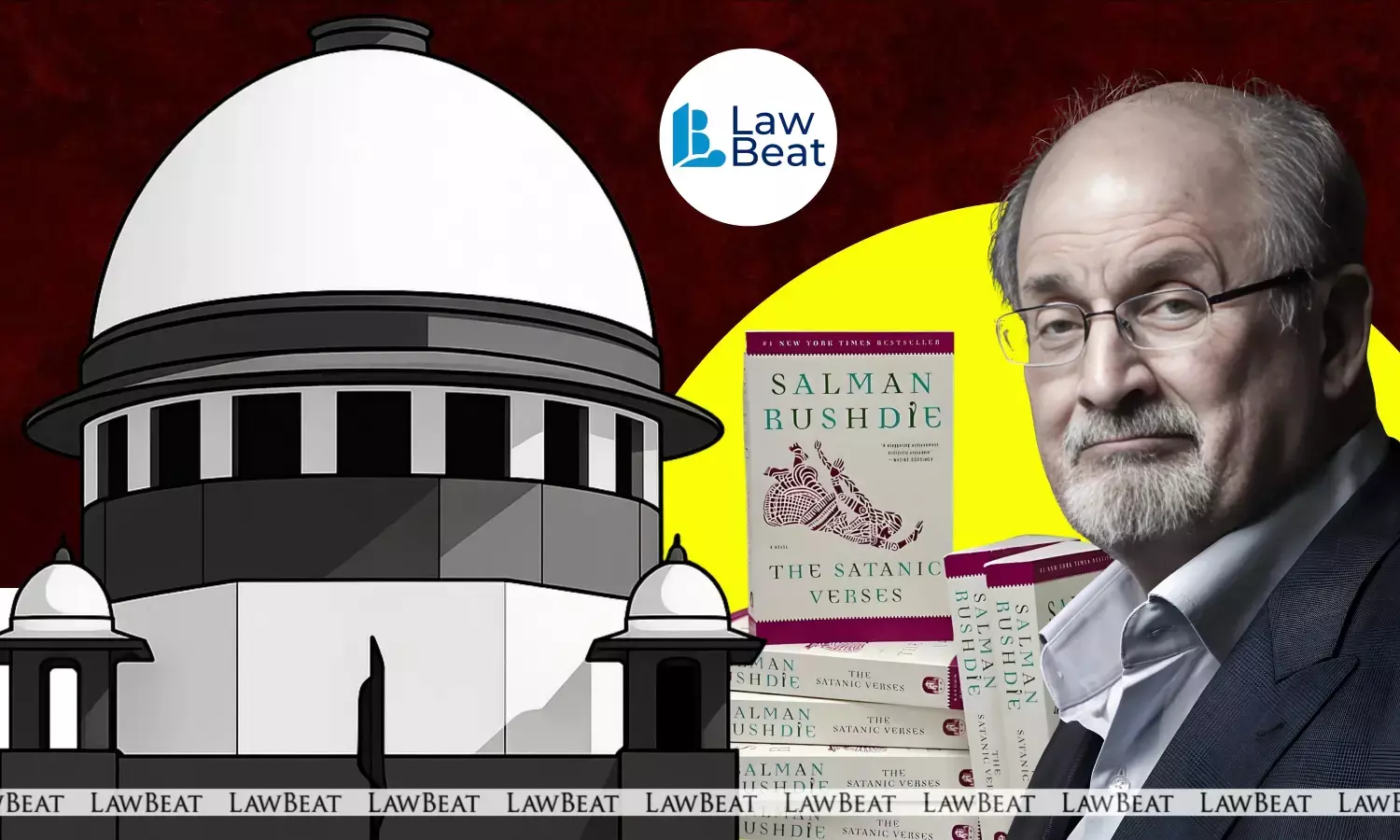Supreme Court Dismisses Plea Seeking Ban on Salman Rushdie’s The Satanic Verses

In 1988, the Congress-led government banned Salman Rushdie’s book The Satanic Verses following a global outcry from the Muslim community, which considered the book blasphemous to the Islamic faith
The Supreme Court on Friday refused to entertain a petition seeking a direction to ban Salman Rushdie’s controversial novel The Satanic Verses.
The Bench of Justice Vikram Nath and Justice Sandeep Mehta was hearing the plea, which alleged that the book had become available in India owing to a Delhi High Court order passed in November last year.
The petition, filed through Advocate Chand Qureshi, relied on the Delhi High Court’s 2023 ruling that closed proceedings against the 1988 government ban on the book’s import. The High Court had noted that since the authorities could not produce the relevant notification, it was presumed that the same did not exist.
“You are effectively challenging the judgment of the Delhi High Court,” the Supreme Court observed, dismissing the plea.
The Centre had imposed a ban on the import of The Satanic Verses in 1988, citing law-and-order concerns after widespread protests from Muslims across the world who considered the book blasphemous.
In November 2024, the High Court while lifting a 36-year-old import ban on Salman Rushdie's novel The Satanic Verses after finding the Customs notification enforcing the ban to be "untraceable."
A division bench while presuming that no such notification exists said, "From the aforesaid, what emerges is that none of the respondents could produce the said Notification dated 05.10.1988 with which the petitioner is purportedly aggrieved, and in fact the purported author of the said notification has also shown his helplessness in producing a copy of the said notification during the pendency of the present writ petition since its filing way back in 2019.".
In the same year, Rushdie faced death threats as Iran's supreme leader, Ayatollah Khomeini, declared the novel blasphemous and issued a fatwa against him. Petitioner Sandipan Khan had filed a plea challenging the notification issued under the Customs Act restricting the import of the book. The petitioner had argued that he had been prevented from importing the book due to its ban, which was enacted through the Customs notification.
During the hearing before the High Court, Advocate Uddyam Mukherjee, appearing for the petitioner had submitted before the bench that notification is neither available on any of the respondent’s websites nor is available with any of the respondents. The respondents have also been unable to produce or file it before this Court. To bolster the argument, the petitioner drew the Court's attention to a Right to Information (RTI) application filed wherein it was confirmed by the Ministry of Home Affairs (MHA) that the book was banned. It had further informed that the said notification was untraceable and therefore could not be produced.
Upon hearing the arguments, the Court had said, "In the light of the aforesaid circumstances, we have no other option except to presume that no such notification exists, and therefore, we cannot examine the validity thereof and dispose of the writ petition as infructuous." Accordingly, the Court had allowed the petitioner to import the book into India. "The petitioner will, therefore, be entitled to take all actions in respect of the said book as available in law."
Case Title: Mohd. Arshad Mohd. Jamal Khan v. Union of India
Hearing Date: September 26, 2025
Bench: Justice Vikram Nath and Justice Sandeep Mehta
